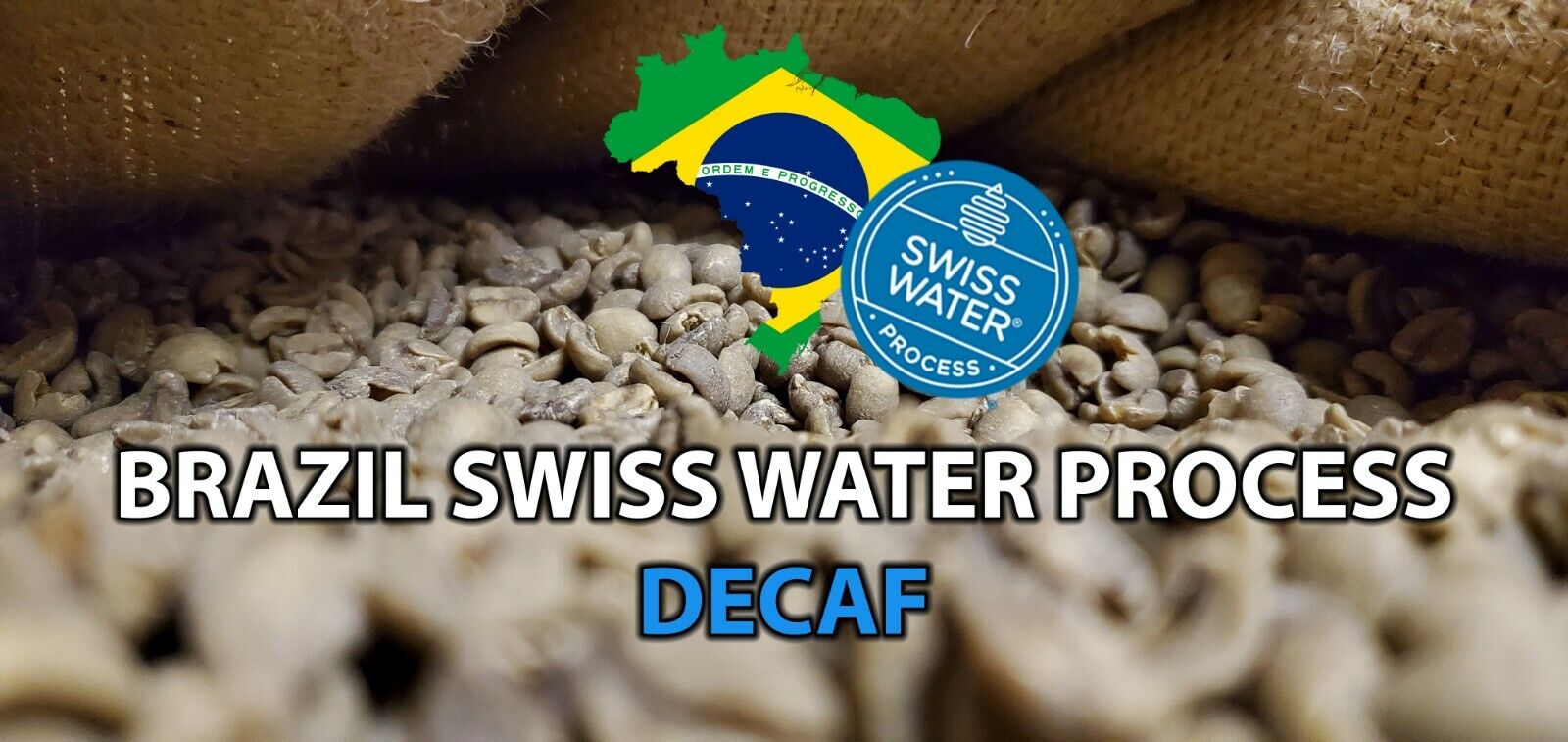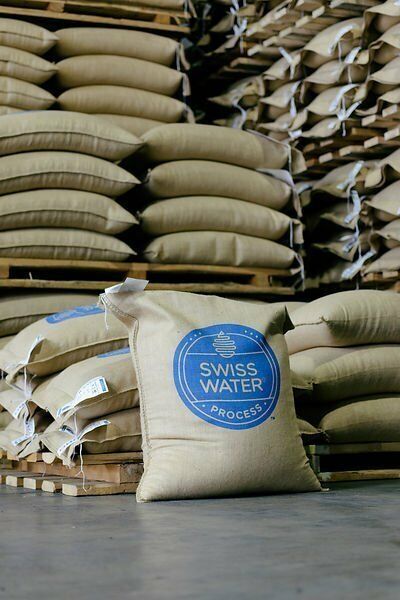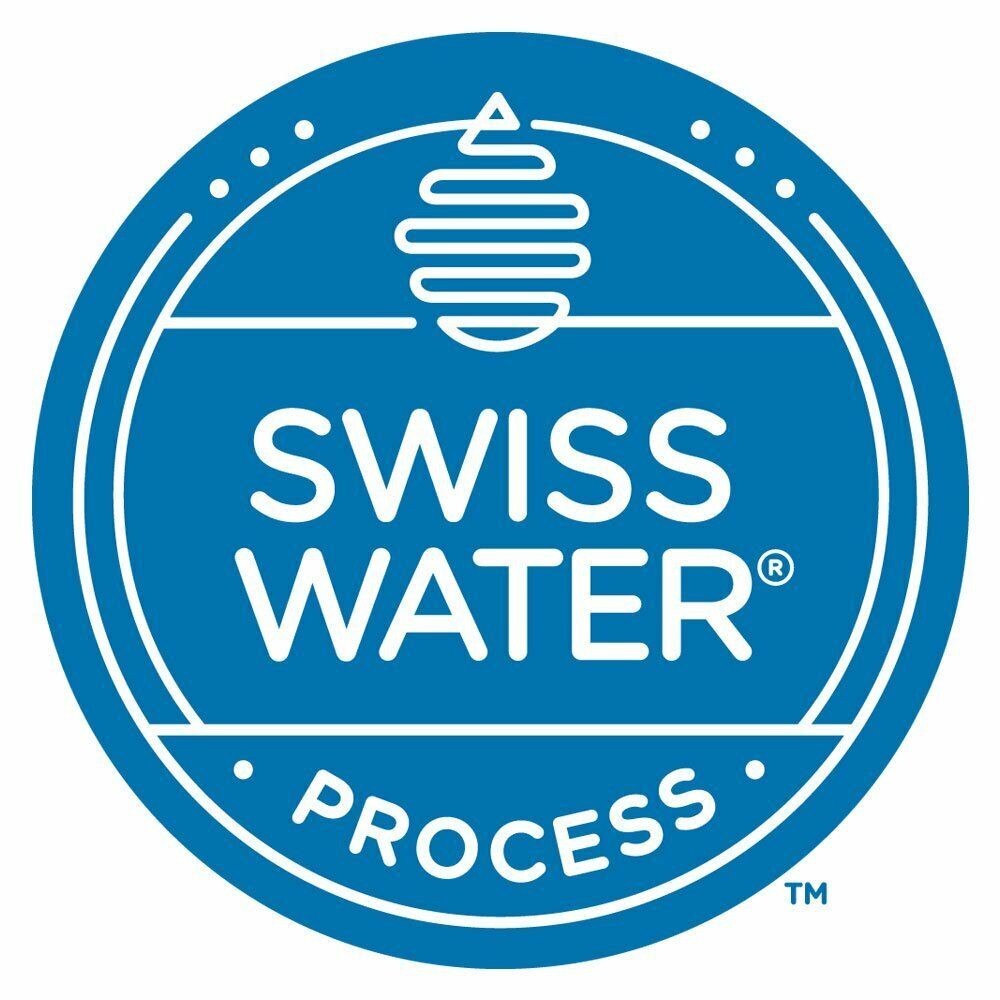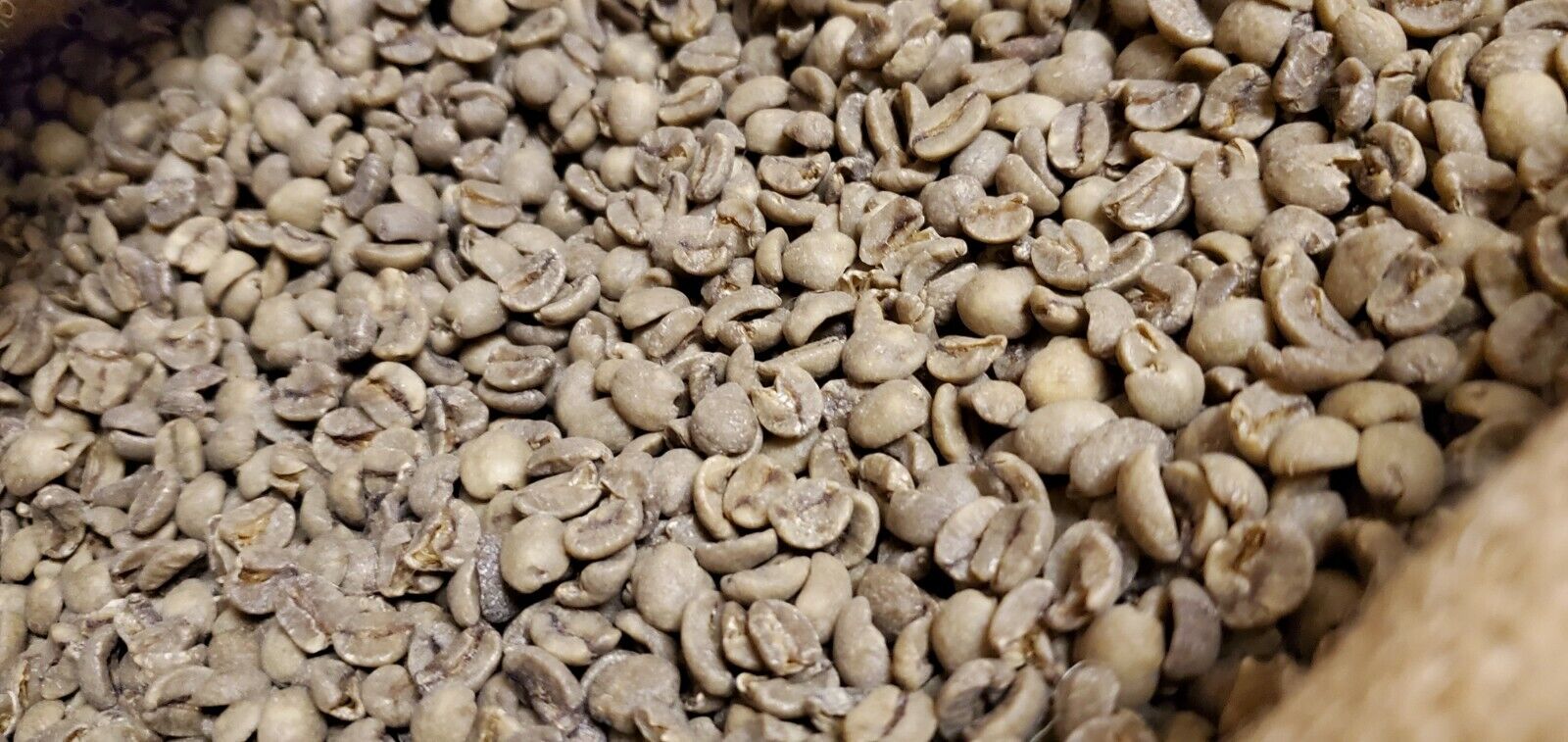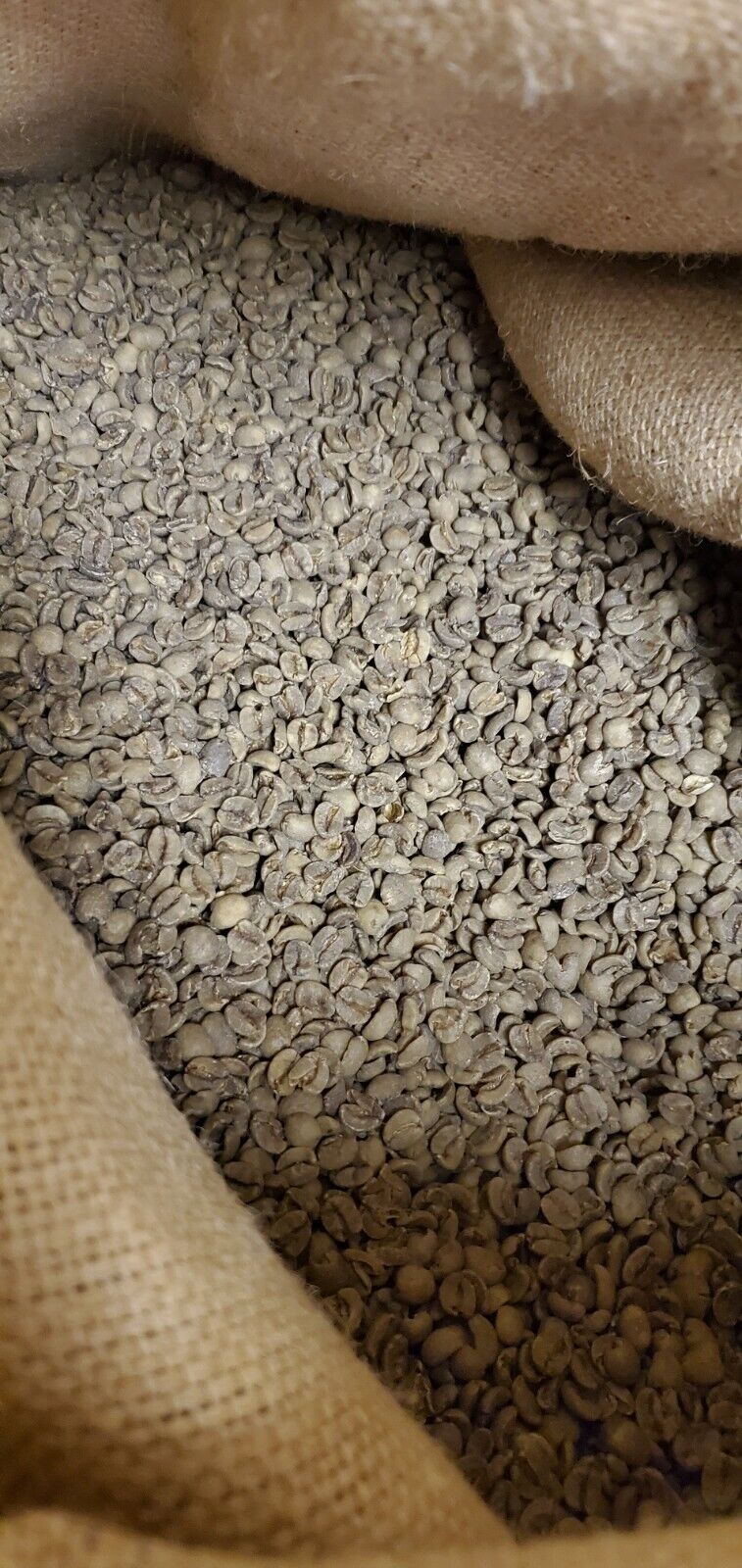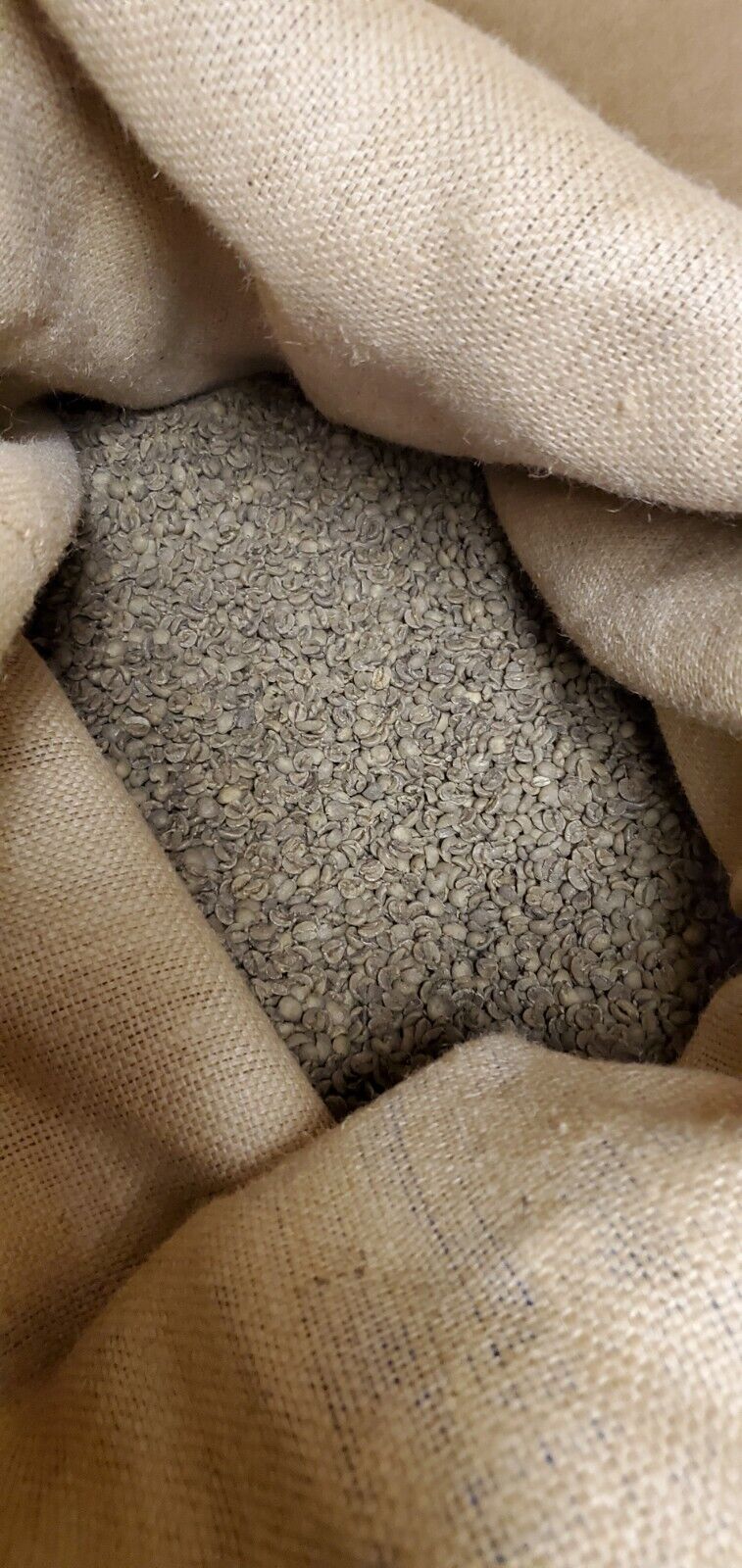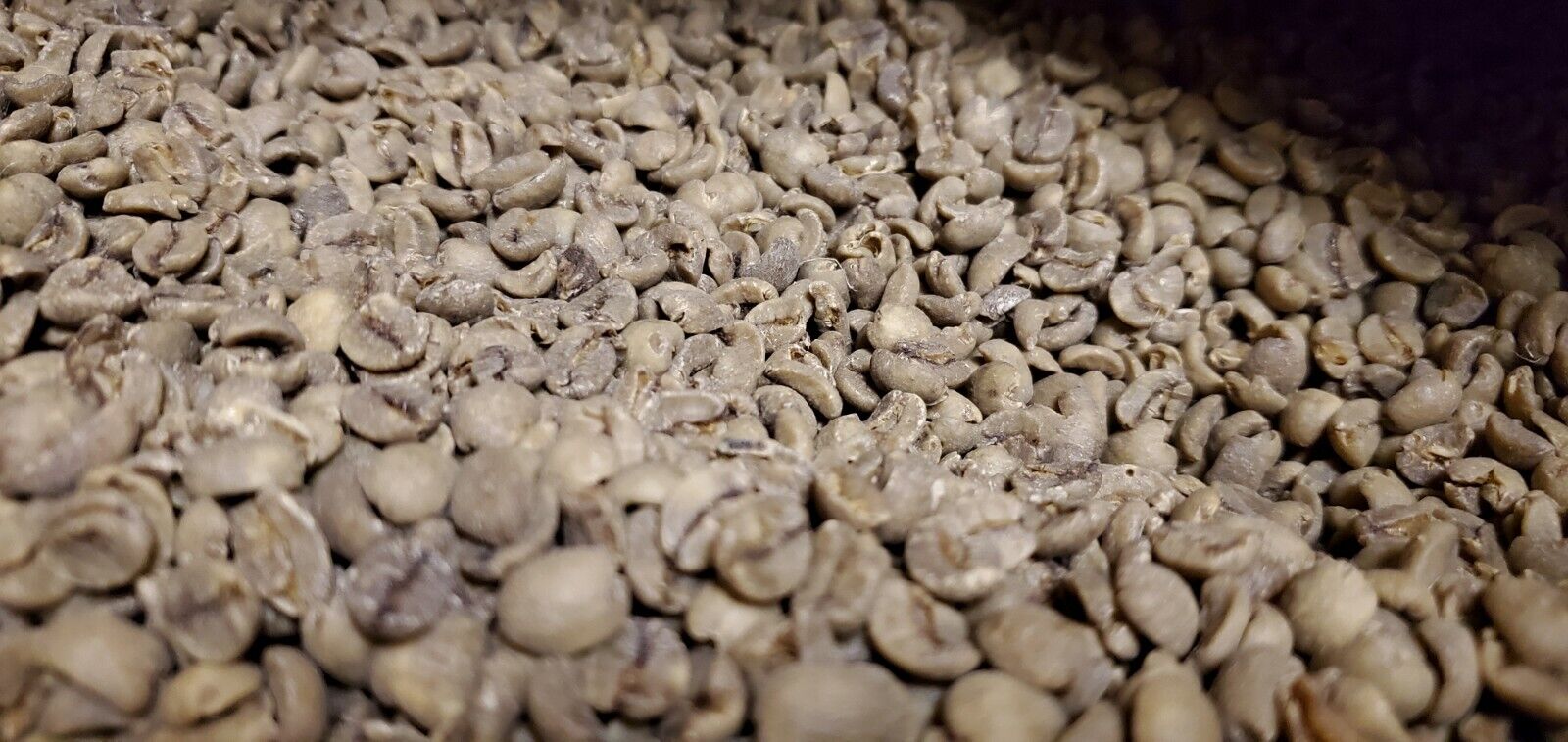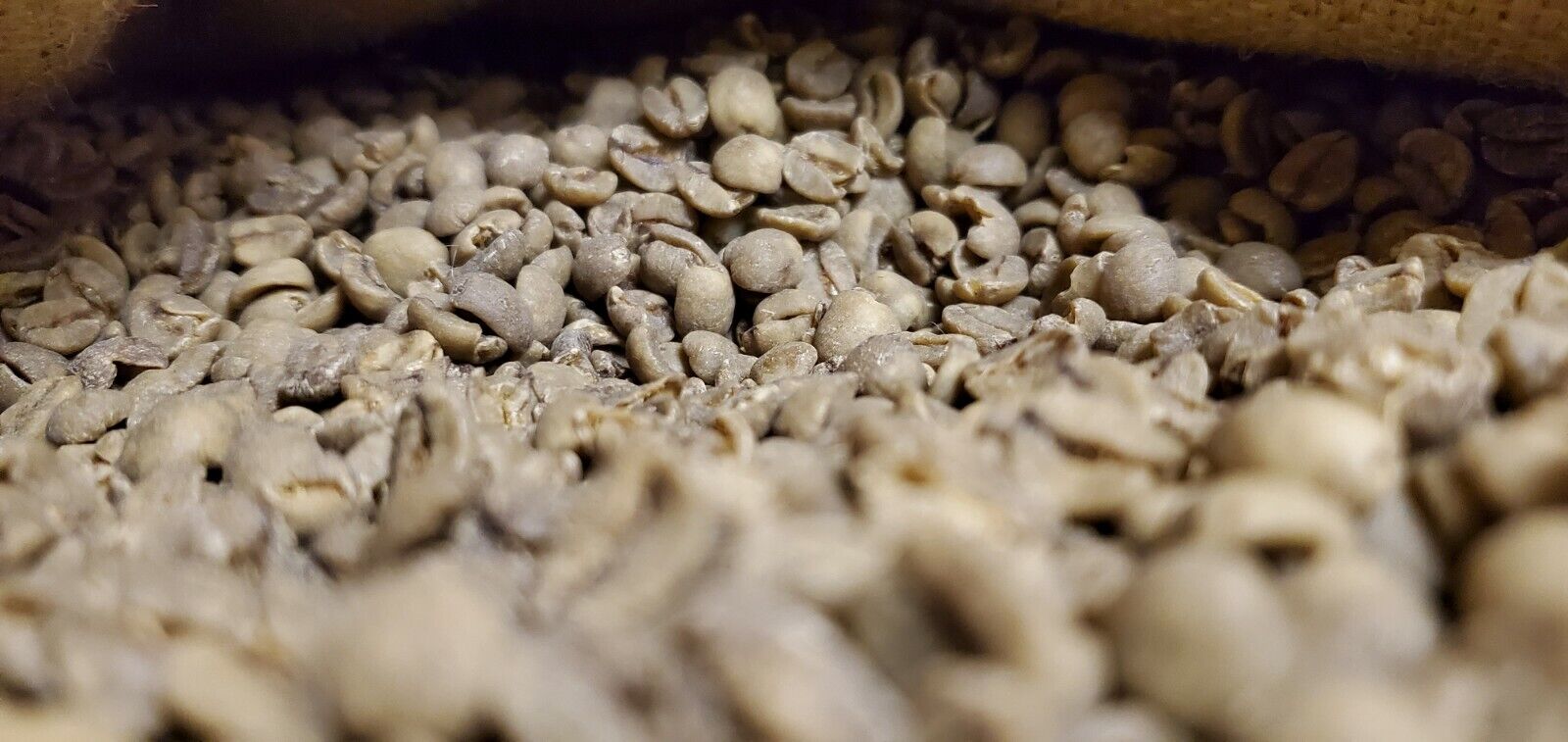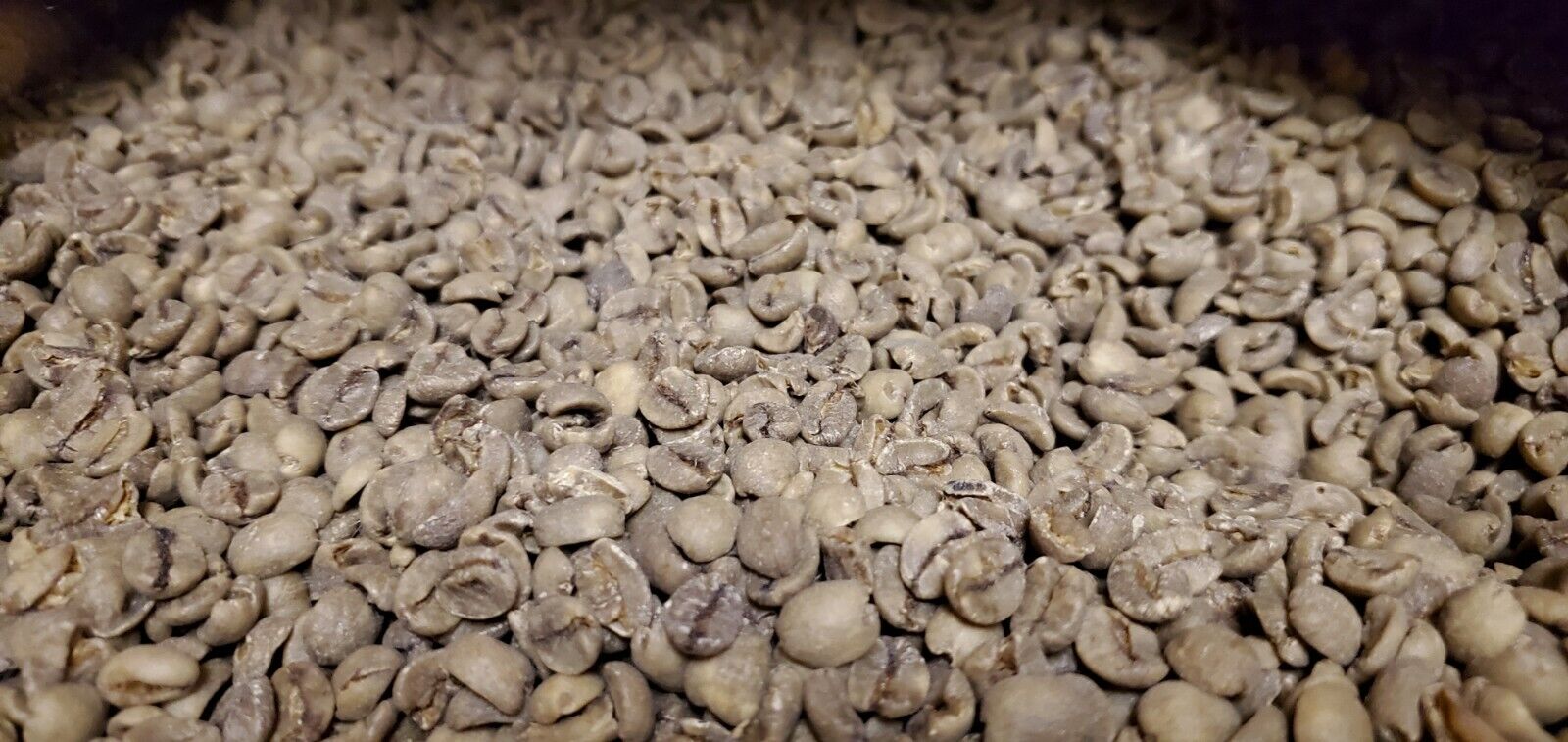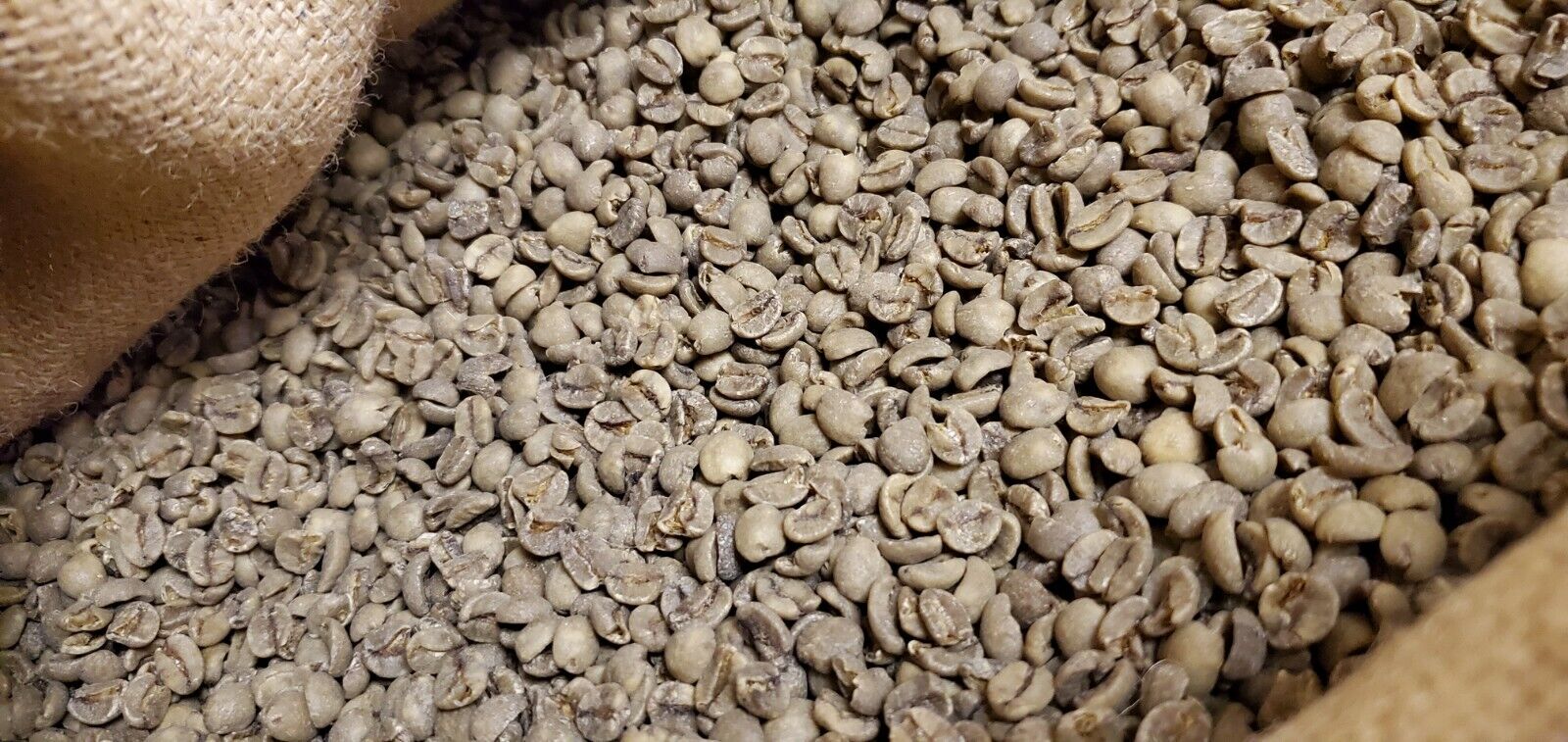-40%
5 LB BRAZIL SWP SWISS WATER PROCESS UNROASTED GREEN COFFEE BEANS - ARABICA DECAF
$ 17.94
- Description
- Size Guide
Description
NATURAL BRAZIL SWISS WATER PROCESSDECAF
5 Lbs of Fresh Green Un-Roasted DECAF Arabica Coffee Beans
Milling Process:
Natural
Grade:
Strictly Soft, Fine Cup, 2/3
Screen:
17/18
Cup Characteristics
Nutty, Soft Fruit Notes, Chocolate, Pipe Tobacco,
Aroma:
Soft
Body:
Medium
Acidity:
Mellow
INFORMATION
Swiss Water Process (SWP) coffees are free of added chemicals and processed using the cleanest water possible. SWP is also dedicated to aiding initiatives that support sustainability and the livelihoods of producers around the world.
The SWP process works through diffusion, not osmosis. Initially, green coffee beans were soaked in water until all the caffeine and flavor compounds were extracted. The beans were then discarded, and the solution they created was run through a carbon filter that removed the caffeine, leaving behind only the flavor compounds—what SWP calls its green coffee extract, or GCE.
When SWP decaffeinates a coffee, the beans are soaked with a small amount of the GCE, which creates a saturated solution in which the caffeine leaves but the coffee’s flavor compounds remain in place, unaffected. The GCE is like a yeast “mother.” While initially SWP had to sacrifice some coffee to create it, once the first batch was made, it just needs to maintain the health of the GCE and keep it slowly regenerating, which it does by adding small amounts of clean water.
Once the caffeine is extracted from the beans, they’re dried to 10.2 percent moisture and ready to be roasted.
Ready for some fun facts? Because the cellulose structure of a decaf bean has been expanded and shrunk back — but not shrunk back completely — the structure of the bean is not as tight as non-decaffeinated bean. That’s part of the reason that decafs don’t change much during the roasting process. It’s also the reason roasters don’t hear the “crack”— the cellular structure in decaf has already been manipulated, and the traditional crack is moisture reaching the boiling point inside the bean and pushing through.
Brazil is a well known coffee producing giant. They source around one-third of the world's coffee, making them the largest coffee producer in the globe! Of course, most of this is lower grade Arabica. However, this country is capable of producing specialty coffees.
This particular type is a standard specialty quality coffee. It is dry-processed, meaning the beans are patio-dried while they are still in the cherry. Since the coffees are dried in contact with the sweet mucilage, the coffee's cup profile will be heavy in body, sweet, smooth, and complex. The 17/18 screen size means the beans are bigger than the usual 14/16 screen size Beans.
This type carries three quality classifications:
NY (New York) 2/3; specifies the quality is standard to the Green Coffee Association of New York. 2/3 refers to the amount of defects permitted in the lot; a maximum of nine secondary defects, and no primary defects.
SSFC (Strictly Soft Fine Cup); Strictly Soft beans are grown at relatively low altitudes (under 1200 meters). Beans grown at lower altitudes mature quickly and produce a lighter, less dense bean. This term also means the beans are free of hard taints. Fine Cup means it is a specialty grade coffee.17/18 refers to the screen size used to grade the Beans.
